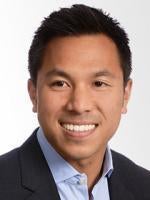The California Supreme Court held that when a court compels an employee to arbitrate their “individual” Labor Code Private Attorneys General Act (PAGA) claims, the employee retains statutory standing to pursue “non-individual” PAGA claims on behalf of other allegedly aggrieved employees in court. Adolph v. Uber Technologies, No. S274671 (July 17, 2023).
Court’s Decision
The question before the California Supreme Court was “[w]hether an aggrieved employee who has been compelled to arbitrate [their individual] claims under [PAGA] … maintains statutory standing to pursue PAGA claims arising out of events involving other employees … in court or in any other forum the parties agree is suitable.”
The U.S. Supreme Court held in Viking River Cruises, Inc. v. Moriana, 142 S.Ct. 1906 (2022), that an arbitration agreement governed by the Federal Arbitration Act (FAA) may separate PAGA actions into two sets of claims: (1) the named plaintiff’s “individual” PAGA claims, which may be compelled to arbitration on an individual basis; and (2) the “non-individual” PAGA claims of other allegedly aggrieved employees. In Viking River Cruises, the U.S. Supreme Court also held that, in its view, the “correct course” was to dismiss the “non-individual” PAGA claims because, once compelled to individual arbitration, the named plaintiff is no longer part of the court action and lacks standing to pursue the non-individual PAGA claims in court. But, in her concurring opinion, Justice Sonia Sotomayor invited the California courts or legislature to have the “last word” on the matter, because the question was one of standing under California law. The California Supreme Court accepted Justice Sotomayor’s invitation to opine and disagreed with the U.S. Supreme Court’s interpretation in Viking River Cruises.
In Adolph v. Uber, the California Supreme Court held that a plaintiff compelled to arbitrate their individual PAGA claims nevertheless retains standing to litigate the non-individual PAGA claims in court. The California Supreme Court relied heavily on its prior decision in Kim v. Reins International California, Inc., 9 Cal.5th 73 (2020), which it held that a plaintiff need only be an “aggrieved employee” to have standing under PAGA. “Aggrieved employee,” in turn, is defined under PAGA as simply (1) someone who was employed by the alleged violator and (2) against whom one or more of the alleged violations was committed. The California Supreme Court concluded that, so long as these requirements are met, a plaintiff has standing to pursue the non-individual PAGA claims in court.
In addition, the California Supreme Court confirmed that, even if a plaintiff retains standing to pursue the non-individual PAGA claims in court, a trial court may stay the non-individual PAGA claims pending the outcome of the arbitration of the individual PAGA claims. Such a stay would avoid having to litigate parallel, overlapping cases. Finally, the California Supreme Court suggested that, if an arbitrator determines a PAGA plaintiff is not an aggrieved employee and the trial court confirms the ruling, the plaintiff would lose standing to prosecute in court the non-individual PAGA claims of the other allegedly aggrieved employees.
Takeaway
In light of the California Supreme Court’s ruling, California employers with arbitration agreements should evaluate carefully arbitration agreements and consider the advantages and disadvantages of such agreements for PAGA claims.







 />i
/>i
